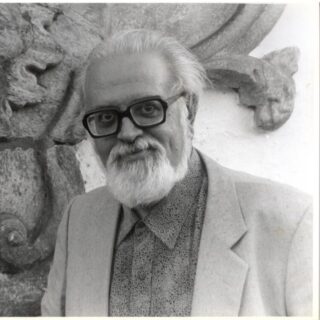Authors & Headliners
Haroldo de Campos

Haroldo de Campos (1929–2003) played a pivotal role not only in Brazilian and Latin American culture, but also in the avant-garde at large. Campos was barely in his twenties when he founded the concrete poetry movement alongside his brother Augusto de Campos and their friend Décio Pignatari. Over the years, his writing evolved in different directions, including the experimental prose of galáxias. Parallel to his creative efforts, Campos republished long-forgotten poets, such as the Romantic Joaquim de Sousândrade and the modernist Oswald de Andrade and translated modernist and world literature, including Joyce, Mayakovski, Pound, medieval troubadours, Dante, Chinese classical poetry, Japanese Noh plays, Goethe, Mallarmé, Biblical texts, and Homer. Campos produced a complex oeuvre of extreme global and temporal breadth, gathered in more than 30 single-authored and collaborative volumes. He received numerous prestigious distinctions, including the Jabuti Prize (Brazil), the Octavio Paz Prize (México), the Chevalier de l’Ordre des Palmes Académiques (France), the Prix Roger Caillois (France), and an honorary doctorate from Université de Montréal.